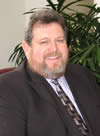The Garden of Life
My Journey Toward Biblicism
My good friend, Dr. Steve Davis, has “outed” me again! If you didn’t catch it, Steve authored a pair of articles for SharperIron dealing with the subject of Calvinism. I was his “exhibit A” for a Calvinist who is also evangelistic. Nobody is really surprised to hear me called a “Calvinist.” I am neither offended nor embarrassed by the term, though I try to use it cautiously. Recently I was preaching at a church and a well-meaning brother asked me if I was a Calvinist. I hesitated to answer. What did he mean by the term? I know what the term means historically, but many people use it carelessly. I know what Steve means by it, though, and he and I are still friends.
Nobody is really surprised to hear me called a “Calvinist.” I am neither offended nor embarrassed by the term, though I try to use it cautiously. Recently I was preaching at a church and a well-meaning brother asked me if I was a Calvinist. I hesitated to answer. What did he mean by the term? I know what the term means historically, but many people use it carelessly. I know what Steve means by it, though, and he and I are still friends.
Whatever label you apply to me, my understanding of God’s sovereignty in salvation has changed over the years. Since Steve has brought up this issue in public, it may interest you to know how I came to the beliefs that I now hold. Well, this is my story.
As a teenager, I was headed in a wayward direction. In my unbelieving home, I learned two things: how to have marital conflicts and how to consume alcohol. Thankfully, God in His grace drew me to Himself before those family influences could bear significant fruit in my life. I trusted Christ as a teenager and began to hear biblical preaching in my late teenage years. By the hand of God, I was directed to a good Bible college (where Steve and I first met on virtually the first day we both stepped onto the campus, almost thirty-four years ago!).
I studied the Bible and then entered ministry surrounded by an atmosphere in which Calvinism was considered heretical. I had no real reason to question that which I was taught. We heard warnings about crusading Calvinism. A local church was even put off limits to students because it allegedly taught Calvinism. I hardly paid attention to the debate. In college and in graduate school, we were told that we were “Biblicists,” which was supposed to mean that we stuck with the Bible alone, not with man-made systems. I was contented with this position. Indeed, I knew nothing else.
After I entered ministry, four factors came together successively to cause a shift in my thinking. The first was the practice of Bible exposition. By the mid-1980s, I found myself planting a church in Canada’s far north. This was before the Internet and, since the community was somewhat isolated, I had few sources for sermonic material outside of personal biblical study. My college professors had taught me to love expository preaching. I began to build a library to assist me in my study. As I worked through a particular book of the Bible, I would buy the half-dozen or so of the most recommended commentaries on that book. Eventually, I learned to trust names like F.F. Bruce, Charles Hodge, J.B. Lightfoot and John Eadie. I also learned which sets or series were generally good—NICOT, NICNT, NIGNT, ExBC, TNTC, TOTC, and so forth. I became acquainted with names like D.A. Carson, Douglas Moo, and John Murray. These books were selected, not because of a theological disposition, but because they were usually considered faithful to the text.
When I began to study Romans and Ephesians, I became troubled at what the biblical writers appeared to be saying. So I turned to commentaries for help. To my surprise, the most careful commentators articulated a Calvinistic interpretation of the text! When I thought that the apostle Paul sounded too Calvinistic, I would open a commentary, hoping to be shown my misunderstanding. But then the commentator would reinforce the plain meaning of the text, often in unequivocal terms.
One day I shared my perplexity with an older pastor. He quickly accused me of “BECOMING A CALVINIST!” I speedily disabused him of that notion. “If I become a Calvinist,” I retorted smugly, “you will be the first to know.”
That is when the second set of events came into play. I needed additional family income, so I took a part-time job with an ambulance service. I had to deal with death regularly. Once, I performed CPR for nearly five hours on a dying victim of hypothermia. In the back of my ambulance, I saw death and touched it repeatedly. That was when Ephesians 2 began to make sense to me. What else could Paul mean when he suggested that we were all “dead in trespasses and sin?” As dead people, we needed God to make us alive.
I shared this thought with my pastor friend, who immediately retorted that men as unbelievers are not “logs.” They can respond to God, he insisted. Well, I never worked on a dead person who was not as inanimate as a log. It occurred to me that spiritually we were in the same situation. Unless God did something to me, in me, and for me, I had no hope of eternal life.
Of course, evangelical Arminians also admit that God has to do something to us. The question is, what does God do and when does He do it? For me, the answer seemed both simple and biblical. He quickens. He makes alive.
Then came the third and most shattering event that influenced my thinking. God, in His infinite grace, gave me a son who was born ten weeks prematurely. For reasons that I still cannot fathom, God choose cerebral palsy for my son. Though tempted to ask how God could let this happen, I was finally beginning to understand that God does not merely “let” things happen. He actually “works all things after the counsel of his own will” (Eph. 1:11). That was when I realized that, for better or for worse, our whole family had better learn to be thankful for God’s loving decision. We did not need to know why. We needed to know WHO!
The final step in my journey came when I was given the opportunity to finish a seminary degree. My theological prejudices had already been severely challenged, and now my dear theology professor began to challenge me to “think in straight lines.” In college, that was not what we were encouraged to do—at least not on this issue. But my seminary professor was unrelenting. If A is true and B is true, then C must be true. And both A and B were invariably in the text of Scripture itself.
You see, John Calvin cannot be blamed for my views. I never read Calvin until years later when I was doing Ph.D. work. No, it was the apostle Paul who challenged my prejudices and God’s providential intervention that shattered my complacency. God taught me what Romans 8:28 affirms: that all things are working together for good to those who love God and are among the called.
A Calvinist? In the end, I suppose that I would have to say that I am just a Biblicist. It was by looking into the Word of God that I discovered wondrous truths for which I shall ever be grateful. If some of those things resemble Calvinism, could it be that I was reading the same Bible he did?
 Dr. Jeff Straub is Associate Professor of Historical Theology at Central Baptist Theological Seminary (Plymouth, MN), and has served an adjunct professor at Calvary Baptist Seminary in Moscow, the Ukraine, and Romania, at Piedmont Baptist College, at LIFTS Institute (Kitchener, Ontario) and most recently at Central Africa Baptist College in Kitwe, Zambia. He has been a senior pastor and church planter in Canada and was a missionary among the Ojibway Indians in Wanipigow, Manitoba. He has had several articles published in the Detroit Baptist Seminary Journal, as well as in FrontLine Magazine. Dr. Straub is married to Rebecca, and they have three children. He enjoys books, golf, hunting, and fishing. Dr. Jeff Straub is Associate Professor of Historical Theology at Central Baptist Theological Seminary (Plymouth, MN), and has served an adjunct professor at Calvary Baptist Seminary in Moscow, the Ukraine, and Romania, at Piedmont Baptist College, at LIFTS Institute (Kitchener, Ontario) and most recently at Central Africa Baptist College in Kitwe, Zambia. He has been a senior pastor and church planter in Canada and was a missionary among the Ojibway Indians in Wanipigow, Manitoba. He has had several articles published in the Detroit Baptist Seminary Journal, as well as in FrontLine Magazine. Dr. Straub is married to Rebecca, and they have three children. He enjoys books, golf, hunting, and fishing. |
- 5 views


Discussion